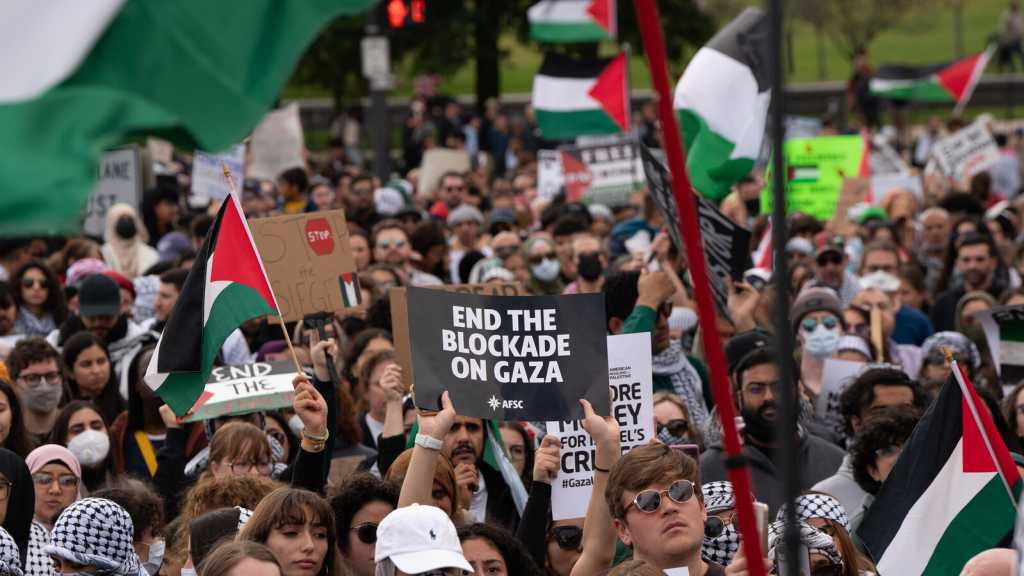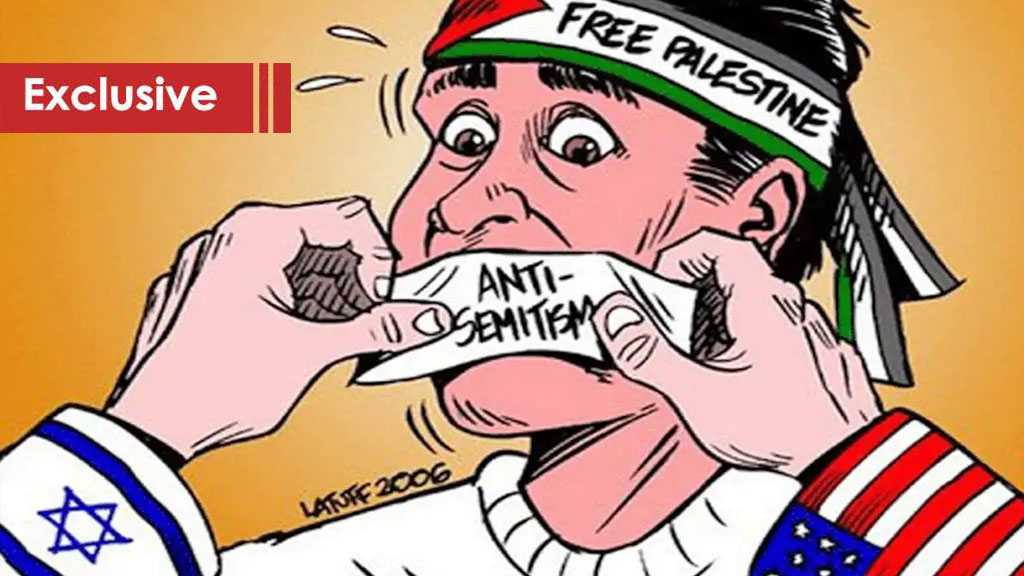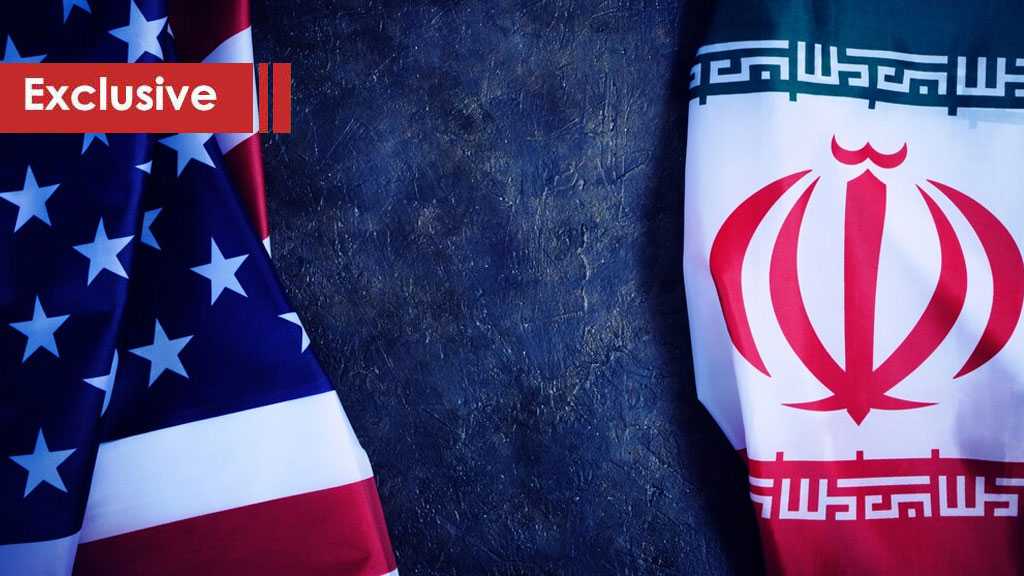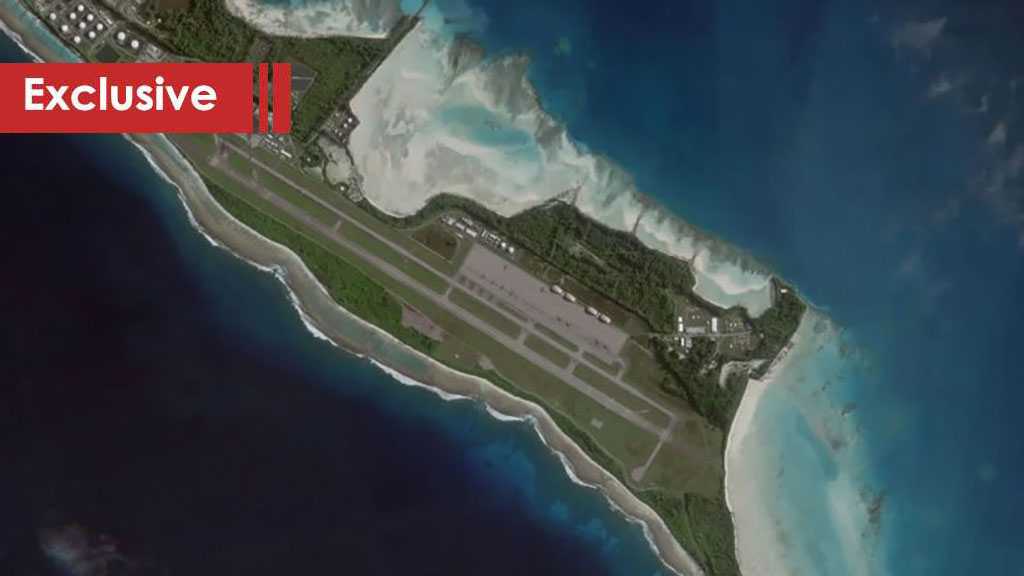Ali Hassan Khalil Exposes One of July-War’s BIGGEST SECRETS: “ISRAEL” KILLS ITS SOLDIERS

To Hell with "Israel", the Evil One... The venom it has secreted for our people will poison its people that hide upon its terror of a missile against the north (of occupied Palestine). So how about when a new equation exists? "A capital for a capital, a missile for an airstrike, and an attack for an attack."
Not only will "Israel's" heart feel the pain, but also our enemy will burn in the fire it has set for us, blazing the enemy's "reason for war". This is the secret this episode exposes.
For five years, this secret has been concealed at the bottom-most point of earth, but now it shall appear on earth, shedding its "deep secrecy" off. Our integrity, in fact, requires that we publish this.
At a certain hour of a day, which we do not wish to reveal to our enemy, "Israel" performed hysterical airstrikes without defining targets. Thus, "Israel" itself was the target that "Israel" has concealed from the public opinion for the years following the War.
"Israel" was wishing to make a progress on land or strike some missile launcher of the Resistance... It chased ghosts, thinking they were military commanders or chiefs. And "Israel" attempted ‘to hunt down' military commanders or chiefs, but it only ‘busted' a person with a name similar to Hizbullah Secretary General's. Thus, "Israel" was quite unfortunate and we were fortunate enough that the man didn't even look like the Secretary General.
Having screwed up too much and exterminated civilians in Bekaa and other places, "Israel" realized it must hold negotiations with us. Yet, we needed to convince certain political parties of the Lebanese interior, and we had to act as patiently and tolerantly as we could, for outside Lebanon, some parties were provoking against the Resistance and adopting the French and American stances. And inside Lebanon, another part ‘was rebelling' with great bias, declaring, "Things are no longer bearable... And a Sayyed's act as a premier is unacceptable."
We endured all hardships like the death of the others' morale, and we chose to keep making our way through the mine fields of the Arabs and the West whilst we were rephrasing texts written upon the threat of a sword.
By the third of August, all actualities had pointed out that "Israel" had entered a very difficult stage as the missiles targeting the "Israeli" cities had reached their highest level throughout the War with respect to the period during which they had been launched, the geographic range they had covered, and the number of deaths made. Hereupon, the "Israeli" politicians and militants had to reflect upon the real dangers resulting from the changes of the War, for the initiative was now the Resistance's. As for the "Israeli" elite forces, they hadn't made any real infiltration that could be marked as an accomplishment. Battles continued at the marches of Maroun Al-Ras in the Middle Sector and on the borders of Sahl Al-Khiyam (Al-Khiyam Plain) in the East Sector.
MP Nabih Berri began his political day by holding a session for the decision-makers and heads of the parliamentary committees, whereby MP Berri informed them quite confidently that we dominated the battle as the actual outcomes revealed that the enemy was going to be conquered. MP Berri's tone bore a very good morale so as to deliver his messages to all participating parties, also to lay the foundations for a legislative workshop that would keep up with the needs of the post-war stage.
MP Berri informed me that the American Ambassador Jeffrey Feltman had tried to contact him more than once, yet Berri refused that and insisted on his stance regarding not contacting the French and American diplomats, especially after hearing news of the American-French scheme. MP Berri added that on this day Feltman again insisted on the meeting and suggested that it be secret in case it would be publicly aggravating. Still, MP Berri refused his request and said that he wouldn't agree on holding a secret meeting in the first place. So Berri asked Ali Hamdan (Head of the Foreign Affairs Bureau of the Amal Movement) to contact Feltman and find out whether he had any new plans; yet, Hamdan wasn't to make any stance before the command of the Amal Movement could reflect upon this issue and make the right decision.
During the meeting with him, Feltman announced that the United States Assistant Secretary of State David Welsh was going to arrive in Beirut, whereby he wanted to meet with MP Berri and Premier Fouad Siniora. Besides, Feltman said that Welsh didn't mind to meet with MP Berri the way Berri wanted, and MP Berri said he would take his time to answer but that "certainly I'm not going to accept a secret meeting."
"Tel Aviv for Beirut" Equation
At night, Sayyed Hassan Nasrallah made a thorough, televised speech regarding the actual incidents, the Resistance's capacities, the qualitative novelties the Resistance had introduced to the battle field, and the tactics used to draw the enemy to ground battles. Besides, Sayyed Nasrallah posed the new equation regarding the qualitative cease-fire, and he addressed the "Israeli" Chief of Staff Dan Halutz:
"If you bombard our capital, then we'll bombard the capital of your coercive entity!"
The Sayyed also held the U.S. responsible for the decision of war and the War itself, and he promised that the outcomes of the War would confirm that Lebanon wouldn't be among the locations of the New Middle East that George Bush and Condoleezza Rice desired.
After Sayyed Nasrallah's speech, we had a phone call with Haj Hussein Khalil before holding a meeting with MP Berri in Ain el Tineh, whereby the Haj informed us of what follows:
"The ground situation is excellent. The missile launchers are so many that after we use them, we leave them in their places so that we do not affect our fighters and people. This is why any talk of bombarding missile launchers is worthless. This is the tactic we're applying: an eye for an eye. We can still control missiles as we did on the first day, not losing control over any launcher. As for our ammunition, it is apparently better than the "Israeli" ammunition, whereby "Israeli" has quickly commenced transporting ammunition from the depots of the U.S."
Concerning the ground battle, our fighters are present exactly on the borders, and we're allowing them to carry out some infiltration on the basis of tactical reasons that harm the enemy. We've actually loaded the natural entrances; this is why the "Israeli" soldiers are trying to open new routes at every progress attempt. They are confused with the quality of the anti-shield missiles.
The idea of "Tel Aviv for Beirut "actually reiterates that Beirut is protected by the R. rather than the American guarantees, which some international sides seek to promote."
Haj Hussein Khalil continued, "There's yet another issue which only a very limited number of our brothers (members) know as they directly have to do with it, and later none but us will know it: During the recent days, both "Israel" captives died when an "Israeli" airstrike was performed against the place they were in. In fact, our brothers have been very cautious and attentive so that they could avoid such happening, but "Israel's" extending bombardments, use of big missiles, and not saving any place from bombardment led to this. Our men have done this best and risked their lives to preserve the corpses and transport them. Well, this is a paradox ..."Israel" killed the captives for whose sake it had declared the war! As for us, the Resistance, we've been sustaining the negotiations battle as if nothing had happened."
Haj Hussein Khalil added, "Regarding politics, Sayyed Hassan Nasrallah reiterates decisions are yours throughout the development of the talks with different sides. As for the issue of the Shebaa Farms, we have no problem with subjecting them to the United Nations' supervision even though we will basically keep our proposal for liberating them."
Now MP Berri said, "In the first place, I always condition the return of their people so that they could resemble any southern town, but the only exception is having no deployed army."
Upon the Sayyed's statement, Haj Hussein Khalil continued, "Your Excellency, I agree with you; it is essential that we pay attention to the missions of the international forces. It is also essential that we be cautious as Siniora has mentioned the issue again and as he intends to debate this issue with the ministers. We're not going to accept any break in, touring restriction, or such things... I completely support you as we must not accept any Islamic or Arab forces, for this may be exploited by certain sides to propagate sectarianism.
Now Haj Hussein Khalil asked about the French plan.
Berri: "Tell his Eminence that this is not a settlement plan, for France intends to include political causes simulating peace with "Israel".
Khalil: "Do you think Saad Hariri and Siniora will stand by us firmly?"
Berri: "We're going to lose nothing more. With respect to us, all that is proposed is the expansion of the international forces' missions. And we won't accept to debate this in the Ministerial Council before cease-fire so that we avoid embarrassment voting.
And while Haj Hussein was making his way out, MP Berri said to him, "I'm preparing papers for the case I'll file against (the "Israeli" Prime Minister) Ehud Olmert, whereby I'm focusing on his campaign to exterminate Shiites. We must not stand still."
Hariri in Moscow; Denounces Syria, Lebanon.
On August 4, 2006, an "Israeli" massacre befell the outermost point of Bekaa, Al-Qaa Town, and it was similar to "the Qana Massacre". The massacre struck a gathering of agriculturists and was accompanied by expanding bombardments. Now even the last remaining routes between the capital and different regions were cut, totally restricting humanitarian relief processes.
Such escalating atmosphere, actually, didn't at all affect the Resistance that limited the infiltrations into the Middle and East Sectors, brought about great casualties to the "Israeli" Military and launched missiles, striking the heart of the "Israeli" interior. It was the first time when the Resistance used "the Kheibar" missiles that could reach a range of 75 kilometers: till the outskirts of Tell Aviv. As a matter of fact, the Resistance's experiences, as well as its missile-performance development, proved that Tell Aviv was not out of the Resistance's reach. That concurred with the fall of the Merkava legend as the Resistance uniquely used remote-controlled anti-tank missiles.
These facts frustrated the enemy's scheme of dominating a borderline of six-kilometer depth, which was the purpose of the "Israeli" Military's command. Likewise, these facts frustrated the unity of the "Israel" leaderships as those were confused and made contradictory opinions in regard to expanding the war or stopping it.
By that time, the United Nations Security Council (UNSC) had begun witnessing more movements led by the United States and France that were preparing for the resolution of the week to come: expanding political standards and leaving no main room for the both "Israeli" captives, for whose sake the war had broken out. Now these captives constituted only a part of the solution ‘accessories'; whereby in accordance with the American stance, the solution involved the Resistance's arms, the borders with Syria, and the formation of an international force licensed by the UN Security Council.
Meanwhile, MP Saad Hariri was on a visit to Moscow, holding talks on a thorough solution for the problem in concurrence with cease-fire. Hariri also denounced Syria and Iran, trying to show them taking part in the battle and using Hizbullah for their political aims. He had justified, though, Hizbullah's presence in the government, describing it as influential with respect to the political life of the interior.
Uneasy Siniora in Ain el Tineh
At 10:00 AM, MP Berri received Premier Siniora to hold an urgent meeting. Siniora was devastated and obviously nervous, saying that things were no longer bearable and that he didn't accept seeing Sayyed Hassan Nasrallah showing up to address the "Israeli" prime minister "as if he were the representative of the Lebanese State. We're behaving as if there were two states in Lebanon. I can't tolerate this. Yester night, Sayyed Nasrallah was talking, offering suggestions, and threatening - as if I had not been there! The atmospheres in Beirut are bad, and people cannot bear this."
Berri: "And why should you think this way? Didn't you set your seven points and get us by your side despite our discrediting for certain points? Didn't you hear what I said during the session for the parliamentary committees that we're on your side concerning what you've decided? You must pay attention that Sayyed Hassan Nasrallah is leading an exceptional battle. When it came to you, none told you that you acted on behalf of yourself in Rome, but rather we adopted your decision in order to preserve the national unity."
"Israel": "I think we should hold a general, national meeting like the one held by national leaderships upon the "Israeli" invasion in 1982, when the leaderships requested that "Abu Ammar" (gone, former President of the Palestinian Authority Yasser Arafat) get out of Beirut."
Berri:"Unfortunately, I refuse this. In 1982, we were almost defeated as "Israel" surrounded Beirut and razed it with artillery. Then, I refused to announce Yasser Arafat innocent to leave with a Lebanese request, and I told him that both choices we had were painful. Your Excellency, now we're victorious, so why should we appear as defeated?!
We must be very determined and stay united. Yesterday, I refused to hold a national conference as requested by different parties and MP Salim Hoss, for I could not guarantee that all of them were going to approve of your paper. Thus, I didn't wish to make inner division apparent.
Fouad, there are three issues to be considered:
1- The fighters' steadfastness is definite. And we're about to win the battle. (Siniora replied, "You're right.")
2- We must preserve our national unity. Hizbullah and I disapprove of a national conference.
3- Regarding international calls, things have become clear, and we've declared our stance. What remains undefined yet is the form of the international forces."
MP Berri also said to Siniora, "Since you're saying that the Iranian Minister of Foreign Affairs Manoucheher Mottaki does not adopt our proposal for the issue of the Shebaa Farms, you need to keep in mind our stance as the Shiites of the Amal Movement and Hizbullah: We accept the proposal I've made to you even if the whole world refuses it."
Siniora:"What can I do? The northern coastal route has been cut, and no more vessels are allowed into our waters. The crisis is developing."
Berri:"Well, this is war, and the most difficult part of it is the confrontation lines; we must not weaken."
Siniora: "The Spanish Minister of Foreign Affairs Miguel Ángel Moratinos has talked to me and said that the Syrian Foreign Minister Walid Al-Moallem had informed him that he would be ready to come to Lebanon and wouldn't mind the deployment of multinational forces in the Shebaa Farms without the publishing of borders. Al-Moallem had added that Syria had nothing against the UNIFIL (United Nations Interim Forces in Lebanon) or the Lebanese Army in the South."
Berri: "Then I'm ready to receive him so that we coordinate this issue."
Siniora: "The Arabs want their foreign ministers to hold a meeting in Beirut."
Berri: "So starting from now, let us agree on cease-fire, the seven points that we agreed on in the Ministerial-Council session, and the definition of the forces as the UNIFIL itself. Is that changed?"
Siniora: "No."
Berri: "Haven't you heard Sayyed Hassan Nasrallah's proposal regarding cease-fire?"
Siniora: "He's made the proposal of a knight for another, and "Israel" does not accept this."
Berri: "But this stance strengthens us while negotiating, especially with the Americans."
Siniora: "So have you decided to receive Welsh?"
Berri: "Yes, and I'll stress cease-fire. Now you do your best and hang on. I believe we are about to become victorious."
Berri to Hadadah: We've Endured Too Much Pain
After Siniora left, MP Berri received a delegation of "the Lebanese Communist Party" headed by Khaled Hadadah, who repeated their adoption of MP Hoss's proposal for holding a national meeting. But again, MP Berri warned from the results of such meeting as he was afraid that some political forces might exploit it to strike the unity of the stance, especially before the meeting of the United Nations Security Council (UNSC). MP Berri said to Hadadah, "We haven't objected on the seven points, and we've endured too much pain so as to maintain unity."
Hadadah: "But we're actually making a group of calls with "the March-14 Alliance", "the Progressive Socialist Party", and other figures."
Berri: "As you consider who your attendees will be, you'll have to estimate what they'll issue, and this is the main thing. Let's focus: we are facing the challenge of the proposed plans. For instance, France's plan involves peace with "Israel"."
Afterwards, MP Berri got a call from the Arab League Secretary General Amr Moussa, who said he would arrive in Beirut in the evening of Sunday; whereby the Arab foreign ministers would hold a meeting in Beirut. Moussa added that they wanted to meet with the (Lebanese) government before meeting with MP Berri and then with the "National Dialogue Committee".
Berri: "Well, Lebanon has one government; the Dialogue is not a constitutional institution, and the security situation doesn't allow Sayyed Hassan Nasrallah, who has an essential role in the Dialogue, to participate."
Moussa: "Then let us meet without Sayyed Hassan."
Berri: "Even if he participates, he and I have the same views, so why should we get ourselves involved in this?"
After the call, MP Berri told us, "I've become more cautious and afraid for the unity and its image, for such meeting will start the discussions which will probably illicit quarrels with certain Arab foreign ministers."
Then, MP Berri asked us to study, along with specialists, the best formula for a probable resolution by the Security Council, especially in regard to the international forces.
At 7:00, Haj Hussein Khalil arrived in Ain el Tineh, and we informed him of the atmospheres of the meeting with Premier Siniora and Amr Moussa's call. When the Haj asked about the atmospheres of the Security Council, MP Berri replied that he had set an appointment at 11:30 on the coming day to meet with the U.S. delegate David Welsh, which would allow for finding out what the American intentions were. MP Berri added that Saad Hariri had called him (from Moscow), saying he had worked hard "to make the American plan simulate the French one" and that we had "to make these plans simulate ours, especially when the actual situation was not good." MP Berri replied, "On the contrary, we're controlling the situation; the initiative is ours, and we have no problem."
Furthermore, we discussed some issues related to the dislodged people, particularly in the regions with different categories, as well as the necessity of taking the residents' feelings into consideration. MP Berri added that he had sent some information to General Michelle Aoun (Head of the Free Patriotic Movement) before he held his press conference. MP Berri had also informed Aoun he must be attentive and cautious because his role was very important and might, as well, be a target for "Israel".
Afterwards, Haj Hussein and I continued the session, discussing how to involve the seven standards in a resolution of the Security Council. We discussed, too, meeting Dr. Muhammad Shatah to study the issue, and we set a whole draft which included a comment on every point, its significance, and the way it could be formulated. The essence of the draft was refusing the adjustment of the missions of the UNEF (United Nations Emergency Forces), making a further consideration to the adjustment of "the Armistice Agreement", and making cease-fire concur with withdrawal to "the Blue Line".
Prolonged Meeting with Shatah, Siniora
MP Yassine Jaber, who was accompanied by Ambassador Jihad Mortada, called from London and reported that he had met with the British Minister of Foreign Affairs Tony Blair, who had reported his pursuit to stop the aggressions within 24 hours before fulfilling a basket of several stages. Blair was to call Premier Siniora the following day, too.
MP Berri called Premier Siniora and informed him I would go meet with him and talk to Dr. Muhammad Shatah about what we had discussed for the draft resolution.
At 9:00 PM, I moved to the Governmental Palace and met with Dr. Muhammad Shatah, then with Premier Siniora; whereby the discussion involved formulating the draft resolution in accordance with our point of view. The current idea of the discussion was to involve the elements of the seven standards within the resolution without adopting them, for this idea existed: cease-fire had to be related to freezing the current situations until the Lebanese Army and the international force arrived; as for the other basket, the issue of the captives and detainees could be solved; the migrants could be back immediately; and the Lebanese government could function as sovereign state on all Lebanese lands...
As for the prolonged meeting Siniora and Welsh had, the following points were proposed in accordance with Premier Siniora's views:
1- Welsh proposed the cease of aggressions; we proposed cease-fire
2- Regarding withdrawal to "the Blue Line", Welsh gave no answer and related this issue to the deployment of the international force.
3- Welsh did not approve of withdrawal from the Shebaa Farms.
4- Hizbullah should give up its sites, including the present arms, to the Lebanese Army; thus, the region of South Litany would become empty of any arms. Welsh asked whether the Lebanese Army was ready for this mission. Also, he asked about the details of the arrangements for the entrance of the UNEF along with the Army for the sake of abiding by the resolution.
5- The international force would be formed upon the debate of another basket and upon another resolution, whereby cease-fire could be reached, as well as talks on the details of forming the force and the adjustments to "the Armistice Agreement".
After I left the meeting, I called MP Berri and informed him that most of the ideas required rearrangement concerning priorities, formulation, and arrangement of stages. MP Berri and I agreed to meet the coming day before MP Berri's meeting with Welsh.




